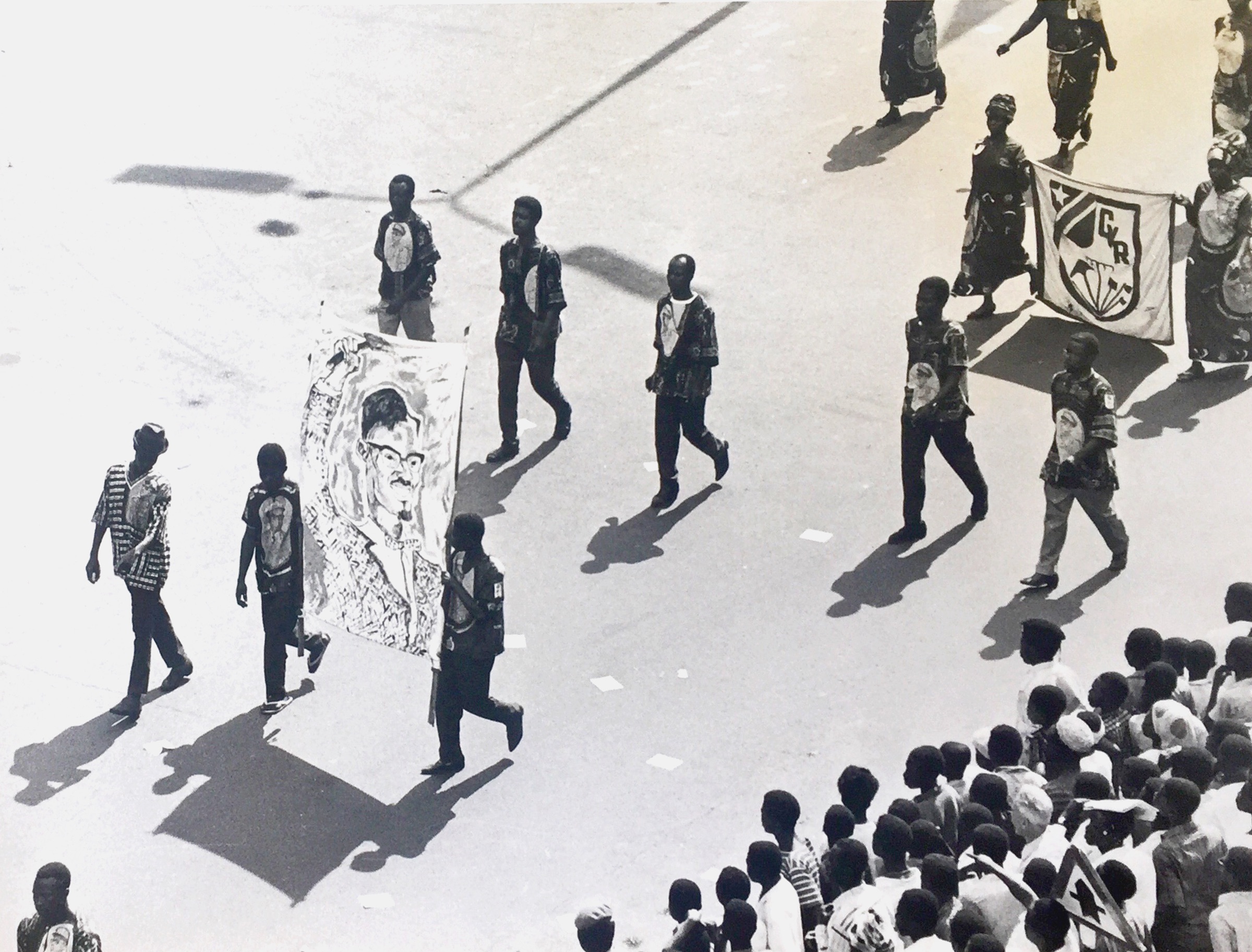Breakfast at Mobutu’s
Jacques Bongoma was a young Congolese progressive who became a close advisor to Joseph Mobutu after the country’s 1965 coup.

A parade in Kinshasa, Congo, in which supporters of the Mobutu regime carry a banner showing Patrice Lumumba following his rehabilitation by Mobutu in 1966 (Source: National Archives in Kinshasa, via Pedro Monaville).
Patrice Lumumba’s Independence Day speech is one of the most powerful takedowns of colonial oppression ever written. In it, Lumumba turned a piercing gaze towards decades of suffering and humiliation under Belgian rule. But he also talked a lot about the future. He announced a new struggle; one that would not end before the abolition of all injustices. His powerful words turned the young Congolese leader into a global icon. They also made him strong enemies. The Belgian and US governments wanted him gone. They helped to orchestrate a coup that deposed Lumumba as prime minister, and were present at all the turns that led to his assassination on January 17, 1961.
Neocolonialism continued to destabilize the Congo in the aftermath of Lumumba’s assassination. Yet, many refused the foreclosure of Lumumba’s vision of radical emancipation. Students featured prominently among those who claimed the mantle of left nationalism. In Students of the World: Global 1968 and Decolonization in the Congo, I revisit their activism and their ideas about nation-building and world politics. Four short interludes introduce each of the book’s main parts. They center on figures whose trajectories offer insights into how students negotiated and later remembered the turbulent landscape of the 1960s.
One of these interludes (in edited form below) builds on conversations with the late Jacques Daniel Bongoma Koni Botoke, who became a close advisor to Mobutu, following the military coup that brought him to power in 1965. Bongoma is not necessarily representative of the students I otherwise focus on in the book, but his companionship with Mobutu reflects a broader pattern in students’ response to the regime. Some students immediately denounced Mobutu as a puppet of the imperialists. However, others applauded his coup, because it marginalized the despised politicians who had led the country so far. This alliance between Mobutu and a faction of the student movement was untenable and short-lived, however, it resulted in key measures that revived Lumumba’s vision and placed decolonization at the center of national politics.



